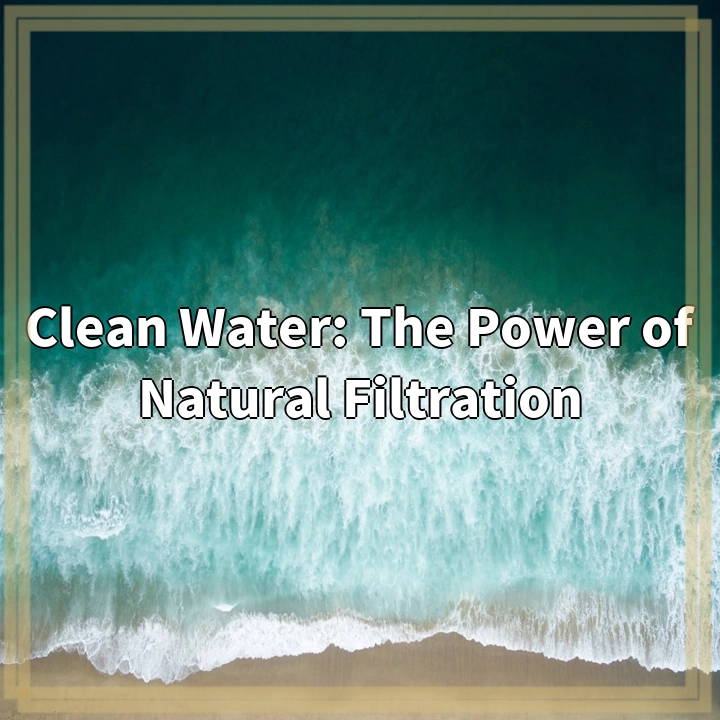
What is Natural Water Filtration?
Natural water filtration refers to the process of purifying and cleaning water using natural systems and processes found in the environment. It involves harnessing the power of various natural elements and organisms to remove impurities, contaminants, and pollutants from water sources, making it safe and suitable for consumption.
Real-world Problems Associated with Natural Water Filtration
While natural water filtration can be a sustainable and effective method of obtaining clean water, there are several challenges and limitations to consider. Here are some of the real-world problems associated with natural water filtration:
1. Limited Capacity:
Natural water filtration systems typically have a limited capacity when it comes to the volume of water they can purify. This can be a significant challenge in areas with high water demand or during times of drought, where natural filtration systems may not be able to provide enough clean water to meet the needs of communities or ecosystems.
2. Variable Effectiveness:
The effectiveness of natural water filtration can vary depending on various factors such as the type and quality of the natural filtration system, the specific pollutants or contaminants present in the water, and the overall health of the ecosystem. In some cases, certain pollutants may not be effectively removed through natural filtration processes, requiring additional treatment methods to ensure water safety.
3. Ecosystem Disruption:
Implementing large-scale natural water filtration systems can sometimes require the alteration or disruption of natural ecosystems. For example, the construction of artificial wetlands or ponds for water filtration purposes may involve clearing land or modifying existing habitats. These disruptions can have negative impacts on biodiversity and ecological balance if not properly managed and mitigated.
4. Maintenance and Monitoring:
Natural water filtration systems require regular maintenance and monitoring to ensure their proper function and effectiveness. This can involve tasks such as removing sediment or debris from filtration beds, monitoring water quality parameters, and managing invasive species that may impact the filtration process. Adequate resources and expertise are necessary to maintain and monitor natural filtration systems over time.

Potential Solutions for Challenges in Natural Water Filtration
While natural water filtration comes with its own set of challenges, several solutions can help address these issues and maximize the effectiveness of this method. Here are some potential solutions:
1. Increasing Capacity:
To overcome the limited capacity of natural filtration systems, it is crucial to explore innovative approaches such as optimizing the design and layout of filtration structures, implementing multiple smaller-scale filtration systems in different locations, and utilizing technologies that enhance filtration efficiency without compromising natural ecosystems. These measures can help ensure a higher volume of clean water can be produced to meet the demand.
2. Complementary Treatment Methods:
In scenarios where natural filtration alone may not completely remove certain pollutants or contaminants, complementary treatment methods can be employed. This includes utilizing additional water treatment processes such as activated carbon filtration, ultraviolet (UV) disinfection, or reverse osmosis to further purify the water and ensure its safety for consumption.
3. Ecological Design and Restoration:
To minimize ecosystem disruptions caused by the implementation of natural filtration systems, it is crucial to prioritize ecological design and restoration efforts. This involves carefully selecting filtration locations that have minimal impact on existing habitats, implementing mitigative measures to compensate for any disturbances, and actively restoring or creating new habitats to enhance biodiversity and ecological functions.
4. Regular Maintenance and Monitoring Protocols:
To ensure the long-term effectiveness of natural water filtration systems, establishing regular maintenance and monitoring protocols is essential. This includes routine inspections, cleaning and maintenance of filtration structures, continuous water quality monitoring, and regular assessment of ecosystem health. Adequate funding, resources, and trained personnel are necessary to carry out these activities effectively.















